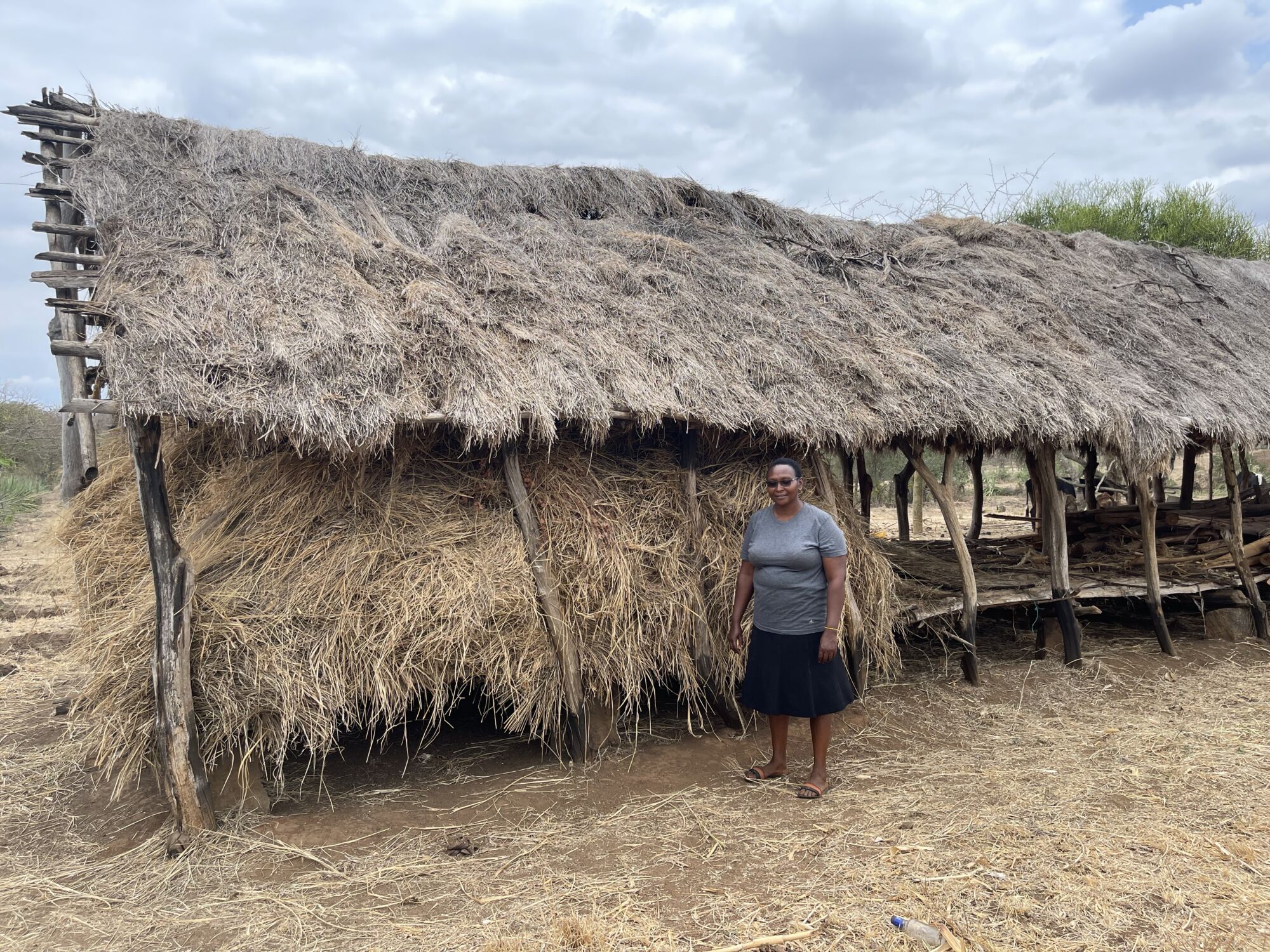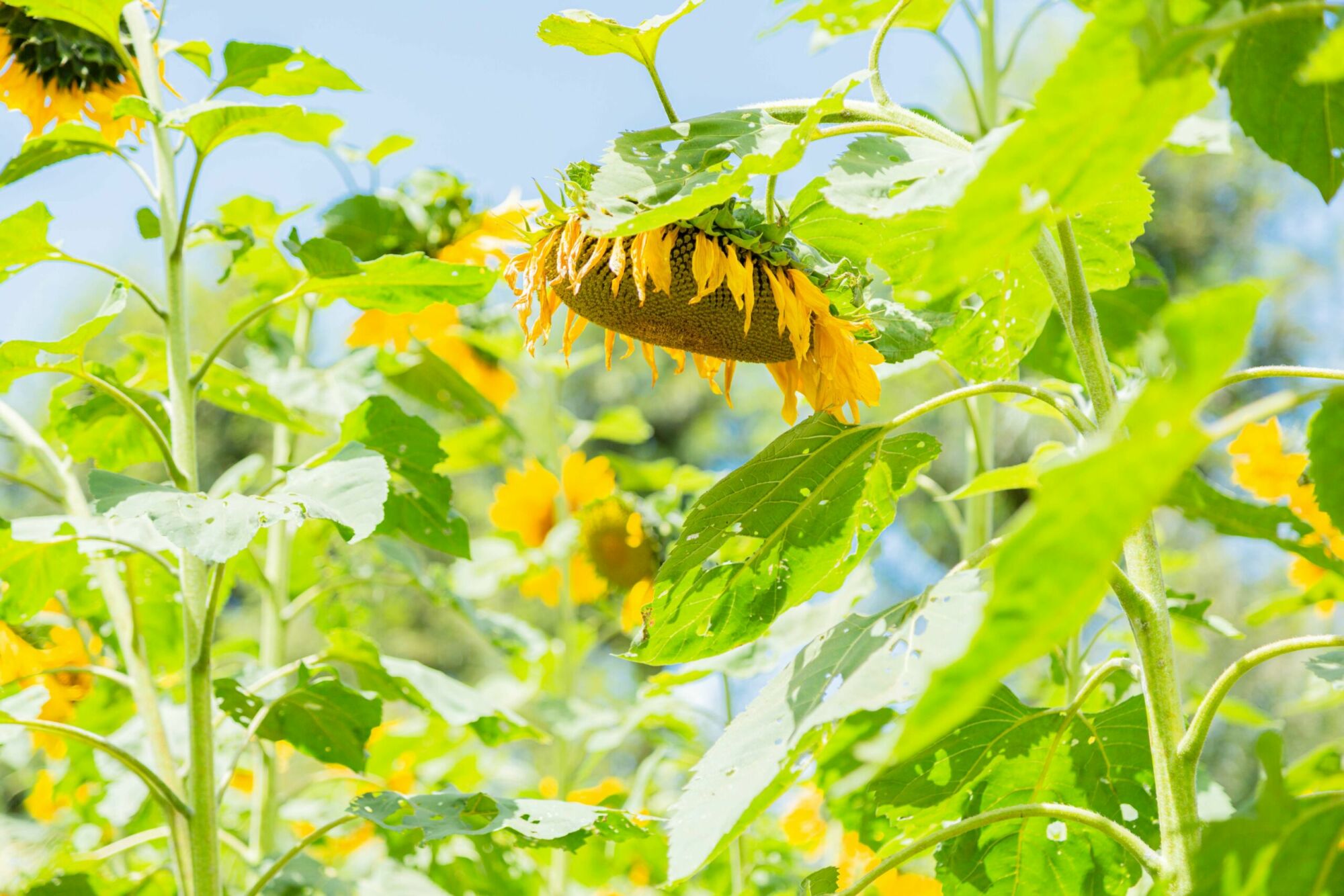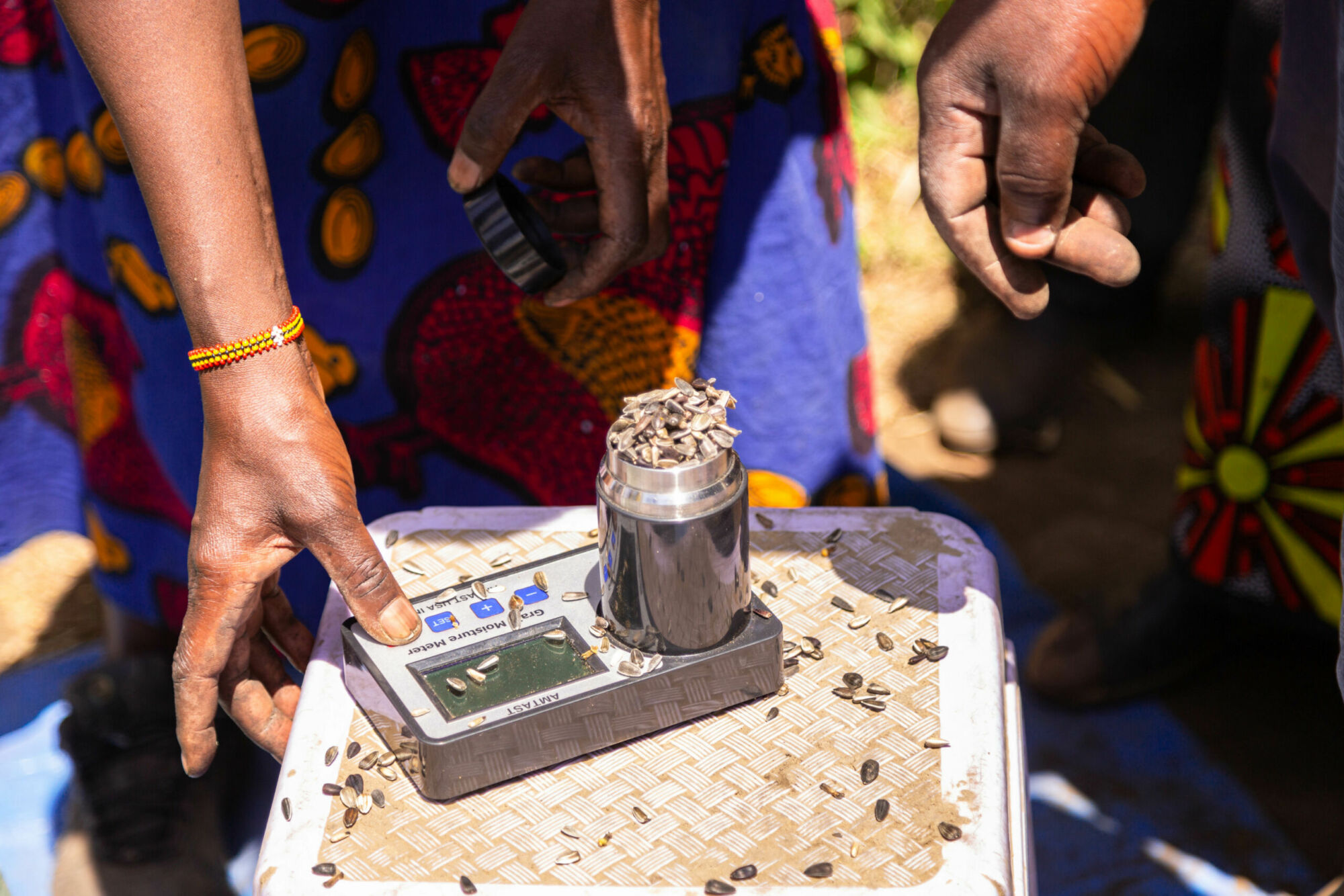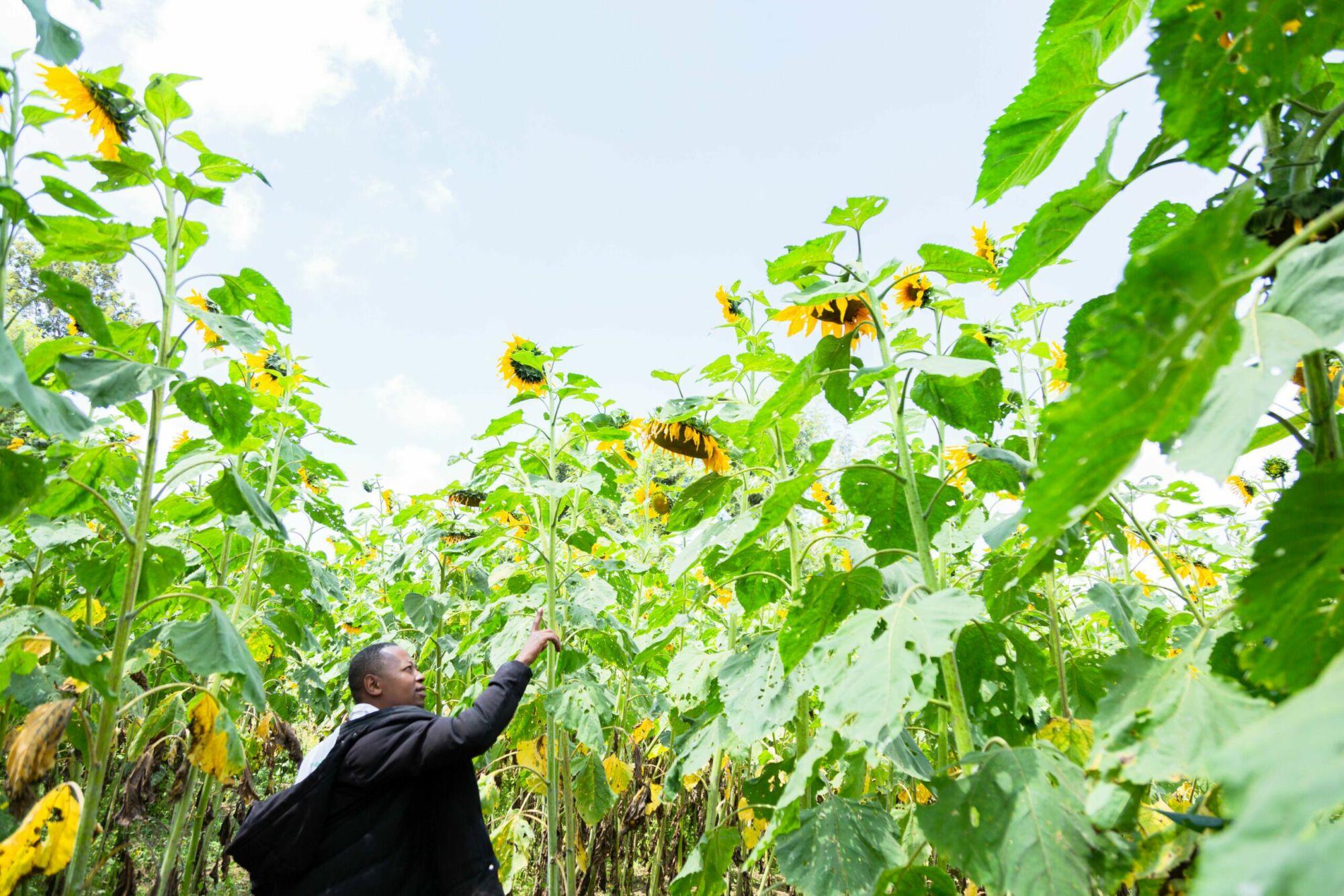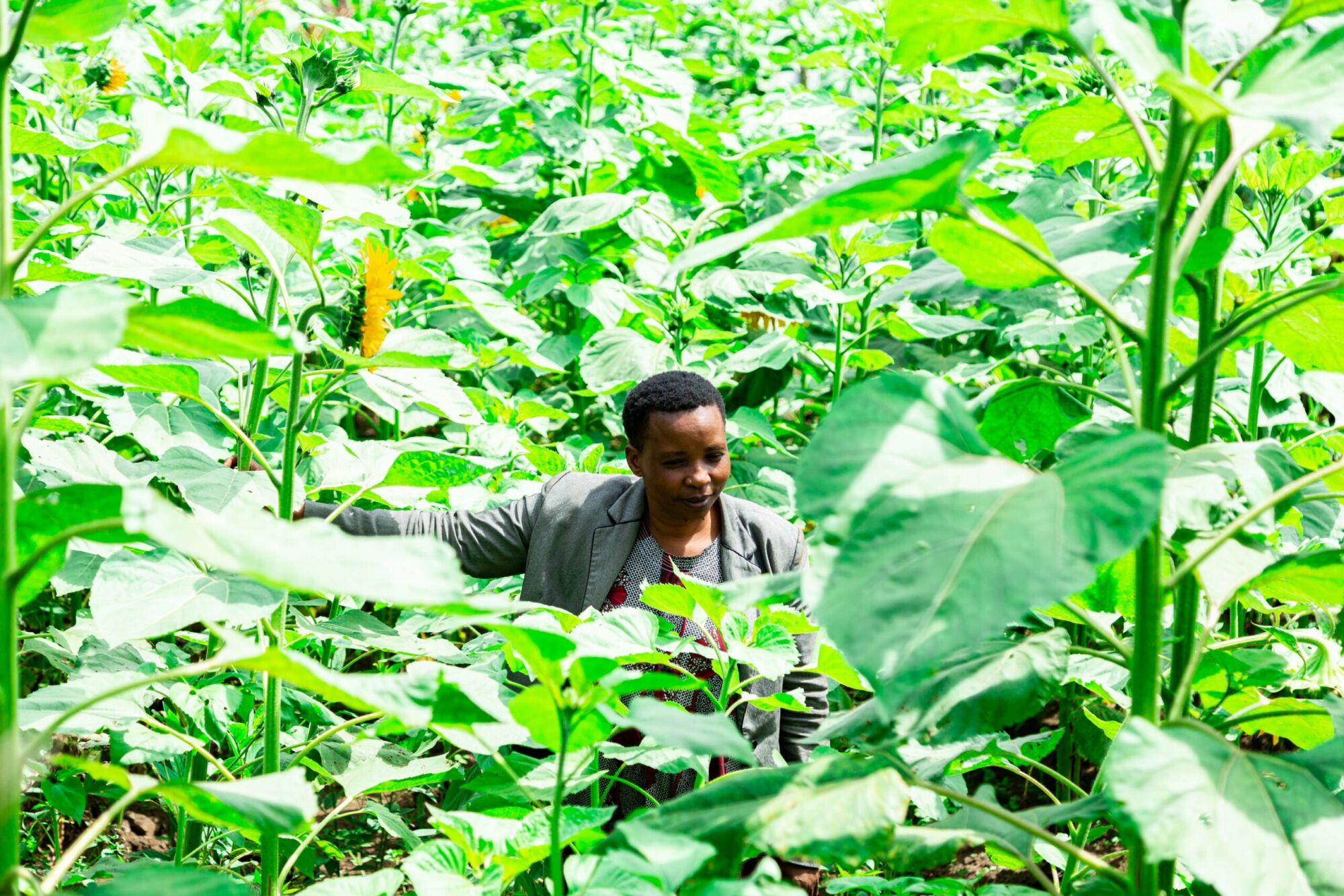Over a decade ago, Jane and her husband Jonathan ventured into dairy farming with one indigenous cow called “Kalonga” in the local kamba dialect. The cow cost them Ksh10,000 (SEK 895) after making some savings from her husband’s masonry job.
This venture was also inspired by one of their uncles and the respect accorded to dairy farmers in the community. People who rear cows are held highly in the society, which is another reason she was determined to improve and keep her herd.
The herd has since increased to six dairy cows,” she says.
Makueni is a semi-arid area, which means that the region experiences little or no rainfall for most seasons. People here face challenges ranging from water scarcity, lack of enough food due to drought, and many more. These extreme challenges affect women in this area more since they have to walk long distances to fetch water.
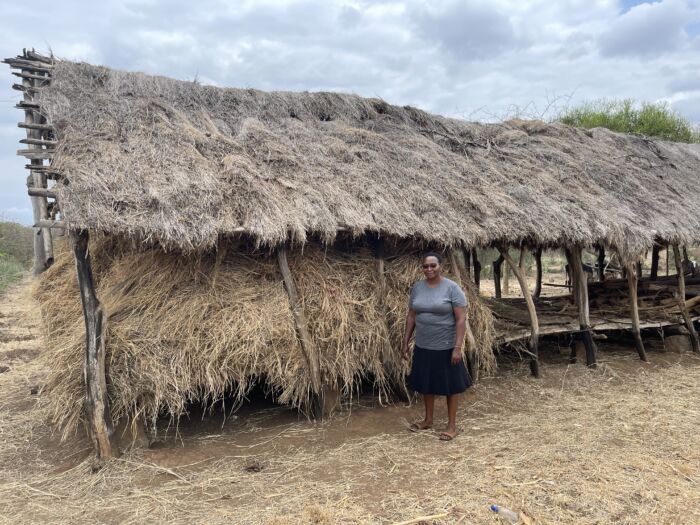
Jane has since held onto the dairy enterprise, taking the weather setbacks as her daily motivation to make it work and showcase that dairy farming can be profitable.
“Because of climate change, the rains have now become very unpredictable. Sometimes we receive very little, and our milk production has greatly reduced”, says Jane. This has discouraged most smallholder farmers to the extent of some giving up the venture. For example, during the dry season, her milk production reduces considerably to six litres during drought.
However, cooperatives have been the lifeline for smallholder farmers in this region. Established in 2003, Kathonzweni Dairy Cooperative typically collects milk directly from farmers such as Jane and markets the raw milk locally. It has benefitted smallholder farmers by providing economies of scale, which helps lower production costs for farmers. These lower production costs can be passed along to the consumer, allowing smallholder farmers to compete on pricing against their larger rivals.
Dairy farmers own a high number of live assets and hence seem to be better placed to improve their socio-economic status than nondairy farmers.
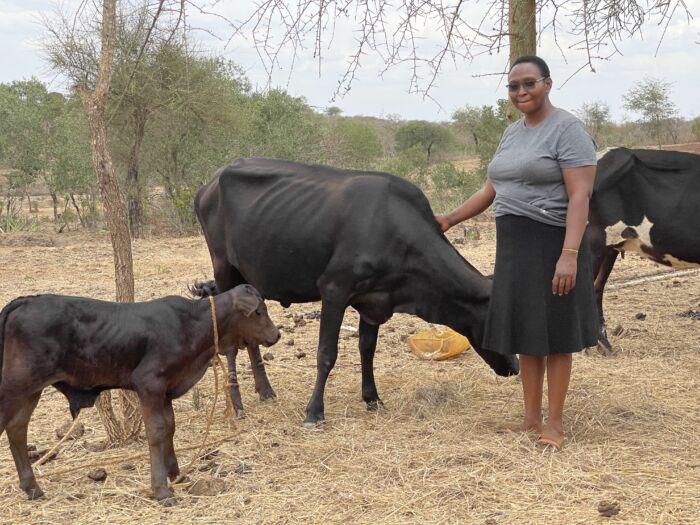
At the time Jane was joining the cooperative, she was remitting five litres a day to the cooperative; they are now doing 20 to 30 litres a day, translating to an average of 750 litres a month. This gives them an average of Ksh 35,000 (SEK 3132) monthy. Kathonzweni Cooperative, an affiliate of Lower Eastern Dairy Cooperative Alliance, has provided a reliable market outlet for her milk. Together with other farmers, they have the advantage in the collective marketing of milk which significantly lowers transaction costs among the smallholder farmers.
“It is due to the training on good dairy practices, especially on artificial insemination and feeding, that has helped us improve our breeds and thus the increase in milk,” says Jane.
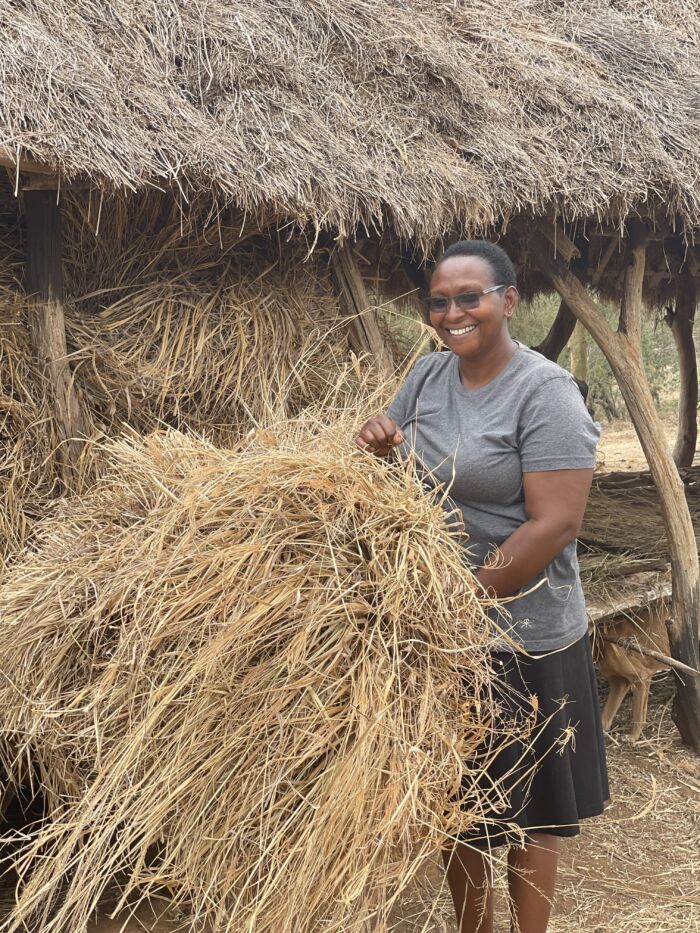
She further attributes it to the fact that she understands the potential of the dairy enterprise and is now giving her best in feeding and ensuring that the herd has enough water and feeds to produce the milk.
Jane now aims to be a high producer, with one cow producing up to 50 litres daily. This will be a tremendous achievement, considering the weather challenges in the area.
The We Effect supported project – Promoting Equality in Dairy Enterprises for improved Livelihoods, helps farmers like Jane improve farm productivity and food security for increased farm returns; enhance resilience to climate change and environmental sustainability.
Through the cooperative, she has a ready market and gets a lump sum amount of money and is able to plan and pay school fees for her kids. The profits enable her to hire a tractor to prepare her land in readiness for the rains. Additionally, they have a house and even purchased a motorbike that Jonathan uses to go for his mason work and sometimes ferry people as a bodaboda.
Due to the efforts made by Jane, she has been elected as one of the board members at Kathonzweni Dairy Cooperative Society. She is also one of the best trainers in the area, which she attributes to efforts made by the Lower Eastern Dairy Cooperative Alliance (LEDCA) through the We Effect Promoting Equality in Dairy Enterprises for improved Livelihoods project.
“My wife is now involved in many socio-economic activities, one being a trainer with the Ministry of Agriculture, a fruit farmer, and more specifically mangoes. This makes people admire us as a family”. A seemingly happy Jonathan says. He also adds that allowing Jane some space has improved their relationship and has helped their love blossom, and he advises other men in the area to follow suit.

We have also received other training on how; to plant fodder and establish a fodder bank for use during the drought season; Sustainable Agriculture Land Management (SALM) – adapt to the impacts of climate change and achieve increased environmental resilience. The massive uptake of hybrid dairy cattle leading to increased milk production has been supported by fodder farming which is steadily replacing the growing of maize and peas in the region.
As a result, she is now a SALM champion and has built terraces that help retain water from the rains – consequently adopting other sustainable agriculture land management practices such as planting drought-resistant crops such as cowpeas, green grams, millet, sorghum, and pigeon peas.
Village Savings and Loan Association (VSLA) has also been a financial savior. “It has been like an umbrella. If I want money, I can get a loan. It has transformed my life. I can now hire a tractor to prepare my land”. She adds, acknowledging she has also received five chickens that supplement her income by selling eggs.”
Dairy farming is a unique and rewarding enterprise; besides guaranteeing Jane a steady source of income, it has kept her busy and relevant in the community, transforming her livelihood.
